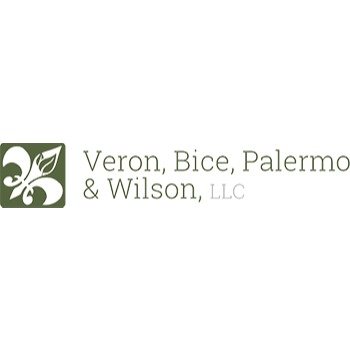Best Medical Malpractice Lawyers in Lake Charles
Share your needs with us, get contacted by law firms.
Free. Takes 2 min.
List of the best lawyers in Lake Charles, United States
About Medical Malpractice Law in Lake Charles, United States
Medical malpractice refers to situations where a healthcare professional or facility fails to provide a standard level of care, resulting in harm or injury to a patient. In Lake Charles, United States, medical malpractice cases are governed by specific laws and regulations that determine the rights and responsibilities of both patients and healthcare providers.
Why You May Need a Lawyer
You may need a lawyer to help you navigate the complex legal process of a medical malpractice case. Some common situations where you may require legal help in Medical Malpractice include:
- Failure to diagnose a serious medical condition
- Surgical errors or medical negligence
- Birth injuries due to medical mistakes
- Medication errors
- Wrongful death caused by medical malpractice
Local Laws Overview
In Lake Charles, United States, medical malpractice claims are subject to specific laws and regulations. For example:
- Statute of limitations: There is a time limit within which you must file a medical malpractice claim in Lake Charles. This time limit varies depending on the nature of the case, so it is essential to consult with a lawyer promptly.
- Burden of proof: In a medical malpractice case, the burden of proof rests with the plaintiff, which means you must demonstrate that the healthcare provider's negligence caused the harm or injury.
- Caps on damages: Lake Charles may impose certain limitations on the amount of compensation that can be awarded for non-economic damages, such as pain and suffering.
Frequently Asked Questions
1. Can I sue for medical malpractice if I signed a consent form?
Signing a consent form does not absolve healthcare providers from providing a reasonable standard of care. If negligence or errors occur, you may still be able to pursue a medical malpractice claim.
2. How long do I have to file a medical malpractice lawsuit in Lake Charles?
The statute of limitations for medical malpractice cases in Lake Charles varies, but generally, it is typically two years from the date of the injury or from the date you reasonably discovered the injury.
3. How do I prove medical malpractice?
To prove medical malpractice, you must establish four key elements: the healthcare provider owed you a duty of care, they breached that duty through negligence or omission, this breach caused your injury or harm, and you suffered damages as a result.
4. What damages can I recover in a medical malpractice case?
Depending on the circumstances, you may be eligible to recover damages such as medical expenses, loss of income, pain and suffering, and future medical care or rehabilitation costs.
5. Can I still pursue a lawsuit if the healthcare provider has apologized for their mistake?
An apology from a healthcare provider does not prevent you from pursuing legal action. It is crucial to consult with a lawyer who can guide you on the best course of action.
Additional Resources
For more information and guidance on medical malpractice in Lake Charles, you can refer to these additional resources:
- State Bar Association of Louisiana - Medical Malpractice Section
- Louisiana Department of Health
- Lake Charles Medical Malpractice Support Groups
Next Steps
If you believe you have been a victim of medical malpractice in Lake Charles, it is important to take these next steps:
- Consult with an experienced medical malpractice lawyer in Lake Charles to evaluate the strength of your case.
- Gather all relevant medical records, documentation, and evidence related to your injury or harm.
- Follow your lawyer's guidance to prepare a formal complaint or lawsuit, if appropriate.
- Consider alternative dispute resolution methods, such as mediation or settlement negotiations.
- Pursue your case in court if a fair settlement cannot be reached.
Lawzana helps you find the best lawyers and law firms in Lake Charles through a curated and pre-screened list of qualified legal professionals. Our platform offers rankings and detailed profiles of attorneys and law firms, allowing you to compare based on practice areas, including Medical Malpractice, experience, and client feedback.
Each profile includes a description of the firm's areas of practice, client reviews, team members and partners, year of establishment, spoken languages, office locations, contact information, social media presence, and any published articles or resources. Most firms on our platform speak English and are experienced in both local and international legal matters.
Get a quote from top-rated law firms in Lake Charles, United States — quickly, securely, and without unnecessary hassle.
Disclaimer:
The information provided on this page is for general informational purposes only and does not constitute legal advice. While we strive to ensure the accuracy and relevance of the content, legal information may change over time, and interpretations of the law can vary. You should always consult with a qualified legal professional for advice specific to your situation.
We disclaim all liability for actions taken or not taken based on the content of this page. If you believe any information is incorrect or outdated, please contact us, and we will review and update it where appropriate.








